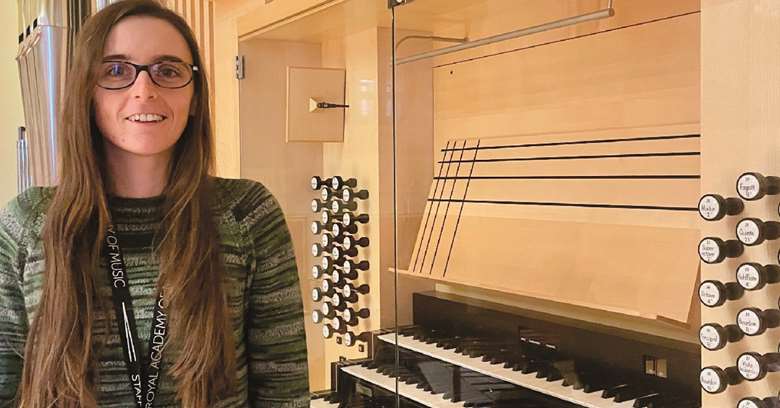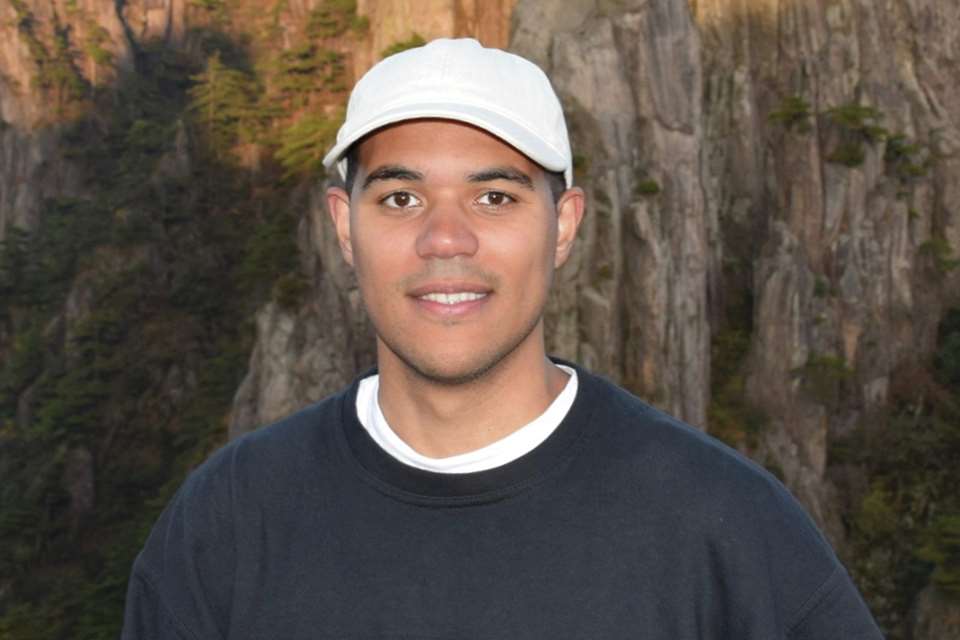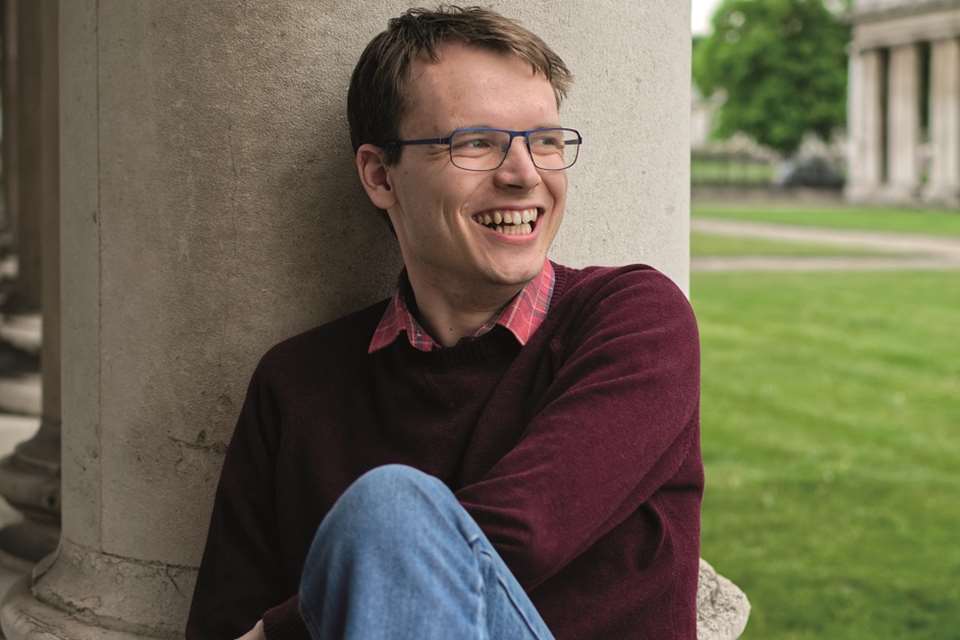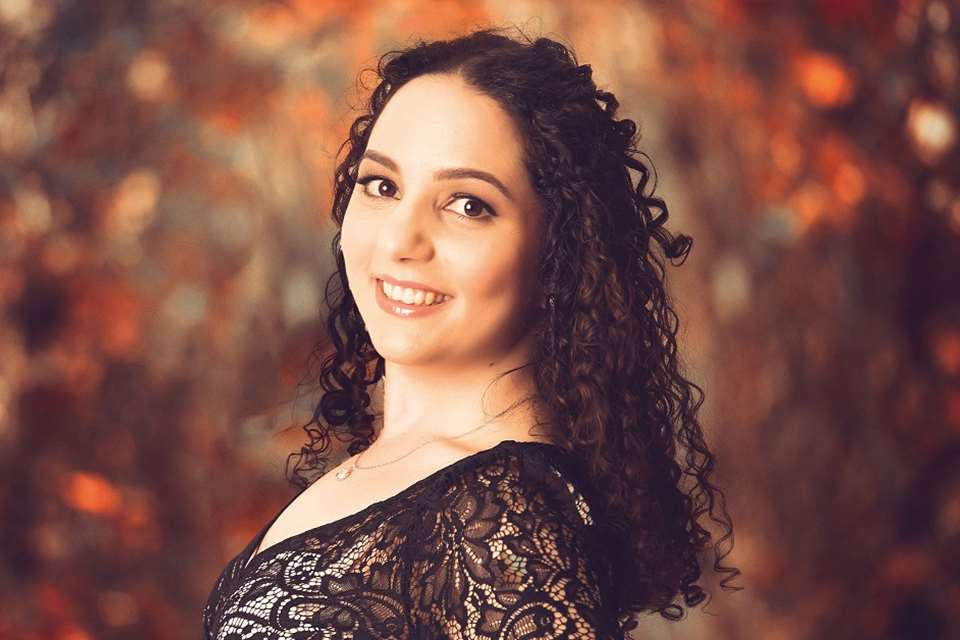Cydonie Banting - Introit for organ
Friday, February 10, 2023
Cydonie Banting talks to Matthew Power about her commission for solo organ, and how her composing has been influenced by her collaboration with Ugandan musicians

Credit: Philip Cashian
Joining group lessons on clarinet at primary school organised by Hampshire Music Service was Cydonie Banting’s introduction to music-making. Sixth-form tuition at Peter Symonds College in Winchester provided five hours per week of both A-level classes and chamber music coaching. Yet it was a geography field trip to a remote Ugandan village that would inspire years of academic ethnomusicological research. ‘That was a real eye-opener for me. I was struck by how much sound ordered aspects of people’s daily lives there, and how musical the Bakiga indigenous group were. Their singing is phenomenal, yet their only musical training is hymn singing in church.’
When she won a place to read Music at Worcester College, Oxford, composition became Banting’s focus with her tutor, Professor Robert Saxton. ‘He was an excellent teacher for someone like me who was approaching composition blind and needed to be taken back to basics.’ Banting remembers the foundational skills Saxton imparted. ‘He was quite methodical – sitting at the piano creating a motif and working out how to spin those notes into different lines, helping me to produce a wealth of material that could be used in the writing of a composition. What I enjoyed about Robert’s teaching was that, if he had a musical point to make, he could always do it by referencing another composer’s music. He has a wealth of knowledge about contemporary repertoire that takes years
to build.’
A Master’s degree in composition followed at the Royal Academy of Music (RAM), studying with Gary Carpenter. Banting also developed the interests she had begun to engage with as an undergraduate, soon returning to the rural south-western village of Kanjobe in Uganda. ‘My first visit was for six weeks; the village has no electricity and one standpipe for water. I recorded music in the school and the church. In this region of Uganda most activities are driven by a desire for development, to generate ways to move away from subsistence farming.’
Next, Banting took her research to another level with doctoral study at King’s College London (KCL). ‘The project I proposed was a little unusual, even by ethnomusicological standards! I chose the musicology pathway to allow me a 100,000 wordcount to explore the place [thoroughly], while also introducing composition into the research. The history of ethnomusicology is dominated by the practice of learning to perform the instrument of another culture in order to understand it. I was interested to explore if there was an equivalent in composition as a practice-led activity in the field. If you can learn to perform in order to understand the music of another culture, can you learn to compose [within it]?’
Her thesis is a collection of different experiments engaging with what those compositional activities might be. ‘For example: one of my friends there sang a beautiful folk song to me. Back in the UK I had been commissioned to write a piano trio for the Romsey Chamber Music Festival.’ Banting used that folk melody as thematic material for the trio Little Hunt, which has a crystalline clarity and uses sparse lyrical and rhythmic material to create a fragile soundscape.
Another collaboration in Kanjobe was with Tumowoyesigire Moses and choir leader Sayuuni Proce, to write a melody for a hymn text for the Kanjobe choir. ‘The community have a book of hymns in the local language but no tunes are written down and they compose their own melodies; it’s improvisatory and a piece only comes into being through repetition, getting lodged in musical memory.’ Banting found the compositional process interesting. ‘I worked with Moses developing a melodic line, we taught it to the choir and they harmonised responses. You get a heightened sense of orality from that method, and it was interesting to collaborate with someone else when composing. Only when I returned to the UK and transcribed the melody did it become clear how much repetition we had unconsciously used to make connections between different lines of the hymn text. It was an interesting lesson for a composer: in a concert the audience is likely hearing your piece for the first time and going to Uganda made me value clarity of gesture, repetition and things that I had possibly overlooked previously.’ She plans to turn some of her research into articles for publication. ‘I’m also toying with the idea of doing another PhD, in composition, to explore some of the things there wasn’t scope for in a musicology thesis.’
Banting’s compositions include a choral work, To Women, performed by the BBC Singers, which is tonal with dramatic use of dissonance and a great clarity of text throughout. How does she approach writing a new piece? ‘I’m quite a pragmatic person. I haven’t tried to cultivate a particular musical language. I tend to start at the piano and find a melodic idea that interests me; in the piano trio mentioned earlier the melody was borrowed, and I was curious to have it running through the music and enveloping it with other ideas. Having a core idea to latch on to helps with the clarity of gesture and direction a piece might go in. And I like writing transitional material, getting from one idea to another in a way that is captivating for the listener.’
Her New Music commission is for an organ piece. Did she have any experience of writing for the instrument before? ‘I had made an arrangement of one of my choral pieces, which worked surprisingly well for organ. The organ is not a piano and I’ve realised that what it does best for me is [exist in that gap] between the sound of a piano and a choir. So when I came to write Introit, I wanted to make use of the organ’s ability to sustain lines, because that is what a piano cannot do. As the premiere is likely to be at a service, I aimed to write something that’s not too long and which could be quite useful for organists as a short piece to play beforehand.’ There is plenty of scope for players to shape their own registrations and make use of the colours and characteristics of their particular instrument. Joseph Fort (KCL’s director of music) was able to give Banting some directions to organ writing at the outset. ‘He was very helpful. I had written some imitative passagework in the pedals; Joe said that semiquavers like that could be quite awkward to execute so I moved that writing into the [manuals] instead.’
Can she sense how a composer can be relevant in contemporary society? ‘It’s a big topic! Because I’ve worked in Uganda where the story of poverty alleviation is so strong, people have perhaps expected my music to be more political than it is. I often don’t feel best placed to push those narratives because I don’t have those lived experiences. The communities speak far better for themselves in the musical work they are doing. With each project I’m involved in, I try to bring interest and pleasure to the audience who are going to listen to it. There are a lot more composers around now; I think we need to be practical and engaging.’
Watch the performance
Charles Maxtone-Smith performs Cydonie Banting’s Introit for solo organ.
Download the score
The score for Introit, commissioned by Choir & Organ in partnership with the Choir of King’s College London and supported by PRS for Music, was available to download and perform until 31 August 2023. Visit our New Music section to see our latest scores.









